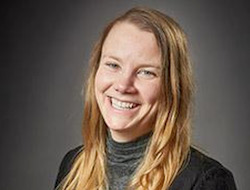
This month, we are delighted to announce the appointment of two new Trustees, Kate Tojeiro and Katy Stafford. Both appointments bring their wealth of professional expertise and business experience into the Nacoa fold.
Trustees are elected by the Nacoa membership, and are responsible for making sure Nacoa is doing what it sets out to do. They help make decisions like a ‘board of directors’ and voluntarily provide expertise to help the charity reach out to, inform and help anyone affected by a parent’s drinking and those concerned for their welfare.
Katy Stafford trained as a Mental Health Nurse, starting her career working for five years in children’s in-patient services. Alongside this work, she also trained as a DBT Therapist practicing within the community. Since then Katy moved into adult in-patient services as a Matron, then Clinical Lead Nurse Manager, and more recently an Improvement Lead Nurse over a number of Mental Health Services.
We spoke with Katy Stafford to hear her reasons for joining Nacoa, and her vision for the future for children affected by their parent’s drinking across the UK.
How did you come to be involved with Nacoa?
My Dad was a co-founder of Nacoa, as well as the author of two books about COAs (children of alcoholics), he died in 1997 and the team/family at Nacoa have continued to carry him in their memory. There is a sentimental value and connection with Nacoa for me because of my Dad, but also because I have a huge passion for mental health and supporting those that may struggle with it.
Was your father an inspiration for your work in mental health?
At the age of 7, I asked my father about his work: he responded, ‘I am talking to a man about his problems, he is very sad, he feels that he is an ugly man, and worries what people think about him’. In that moment, I remember very well, a distinct sense of compassion and care, I wanted to help, in that moment I decided I wanted to spend my time getting alongside people to bring comfort.
Of course, growing up, this desired role grew and adapted, but at the heart of it remained the same. Having experienced the raw pain of losing my father at a young age, I felt and expressed the pain with a fierce honesty, which again lead me to a greater awareness and reality of mental health. Following this, and a number of other hard life events, I continued to be drawn to open and heart-felt conversation about my own and other people’s mental health.
In what way does your work involve working with children affected by their parent’s drinking?
I began my carer as a mental health nurse in an inpatient adolescent ward where I supported young people with their mental health, as well as working closely with their families, and family dynamics. I now work with adults and oversee a number of services under the NHS.
These services come into contact with hundreds of people who need help, which is a huge opportunity to be aware of, and support, those with alcohol problems as well as identifying when they have children and how we can support them. Having become a Trustee at Nacoa, I feel eager and passionate about starting a project across these services, to better identify and support children and families where there is a parent with an alcohol problem.
What could be improved in clinical mental health environments to help those affected?
Awareness:
I think the first step is to raise awareness of COAs with professionals who work in mental health who have contact with thousands of people who I fear will go unrecognised as a COA. I think training could be delivered both through creating a platform for COAs and Nacoa.
I think there would be real value in magnifying the Nacoa information leaflet for professionals to health care professionals, but also through bitesize training sessions, and through talking at events.
Responding to the awareness:
Once awareness has increased, I think their is space to develop more specific 1:1 sessions and support groups for COAs (old and young), these may be focused on sharing experiences and emotions, but also could focus on how to recover specific emotions we know increase e.g. guilt, shame, fear.
There is space to invite COAs who have used the service to help professionals see the gaps and areas for improvement as well as being creative and involved in the needed change.
Shouting as an organisation:
I think once professionals are aware and acting on this, then there is space for the organisation to promote this and set the tone for other organisations. The NHS is big!
Do you have any plans lined up in your new role as trustee?
My hope is to help make the above a reality, particularly in using my current role in NHS front line mental health services. I would like to support rolling out the above COA awareness sessions and promote signposting to Nacoa. I commit to being accountable in ensuring that COAs are kept in sight and mind of our services and how we develop them.


























































































